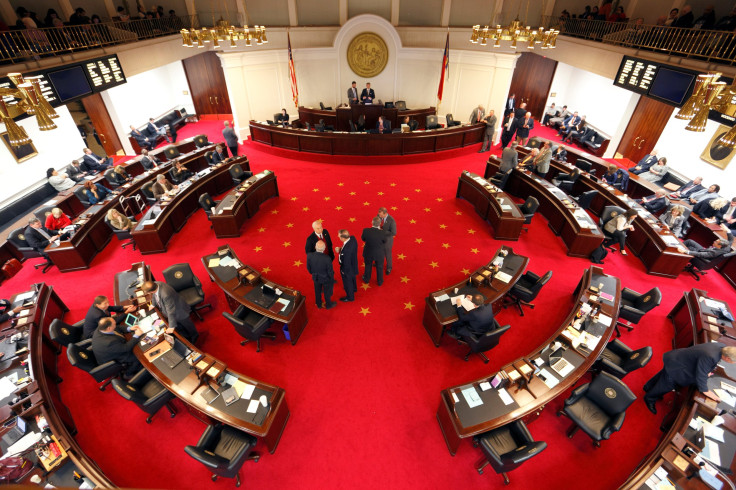Transgender Rights: North Carolina Bill Would Repeal Bathroom Law

North Carolina lawmakers introduced bipartisan legislation Wednesday to repeal the state's controversial bathroom law that requires people to only use the public bathroom that corresponds with their "biological sex."
The proposed measure, called the Equal Employment and Equal Access to Public Accommodations Act, would repeal HB2, which critics on the Democratic side of the aisle said was an effort to discriminate against transgender North Carolinians. In a compromise with Republicans, the proposed law also would ensure regulation of public multiple occupancy bathrooms and changing facilities would be the sole responsibility of the North Carolina General Assembly, and not individual cities, unless the facilities in question were directly owned by cities. It was the city of Charlotte's expansion of discrimination protections to gay, lesbian and transgender people in February 2016 that prompted the Legislature to pass HB2 last year.
BREAKING: @NCHouseGOP & @nchousedems file bipartisan #HB2repeal compromise. Best chance yet to move through @NCLeg. @ABC11_WTVD #ncpol #ncga pic.twitter.com/qyjRYlae2h
— Jonah Kaplan (@JonahPKaplan) February 22, 2017
The new legislation would also add "genetic information" as one of the characteristics protected under some of the state's nondiscrimination statutes, including statutes that cover access to housing and public facilities. This "genetic information" classification would be a way to make sure the state couldn't discriminate on the basis of "chromosomes," a distinction other states have written into bathroom bills to ensure that transgender people use the bathroom that aligns with their birth sex.
Repealing HB2 has been an important issue for North Carolina Democrats. Gov. Roy Cooper ran on repeal of the law during last year's gubernatorial election, which resulted in Cooper defeating incumbent Pat McCrory, who signed HB2 into law. While HB2 opponents wanted the bill repealed to protect transgender rights, the fight quickly took on an economic dimension. The bill led to boycotts of the state by companies and organizations, and major events, like the NBA All-Star Game, moved to other states. In all, it's estimated HB2 has cost the state $400 million.
The bill was introduced in the North Carolina House by Republicans Chuck McGrady and Ted Davis Jr. and Democrats Marvin Lucas and Ken Goodman.
© Copyright IBTimes 2024. All rights reserved.






















